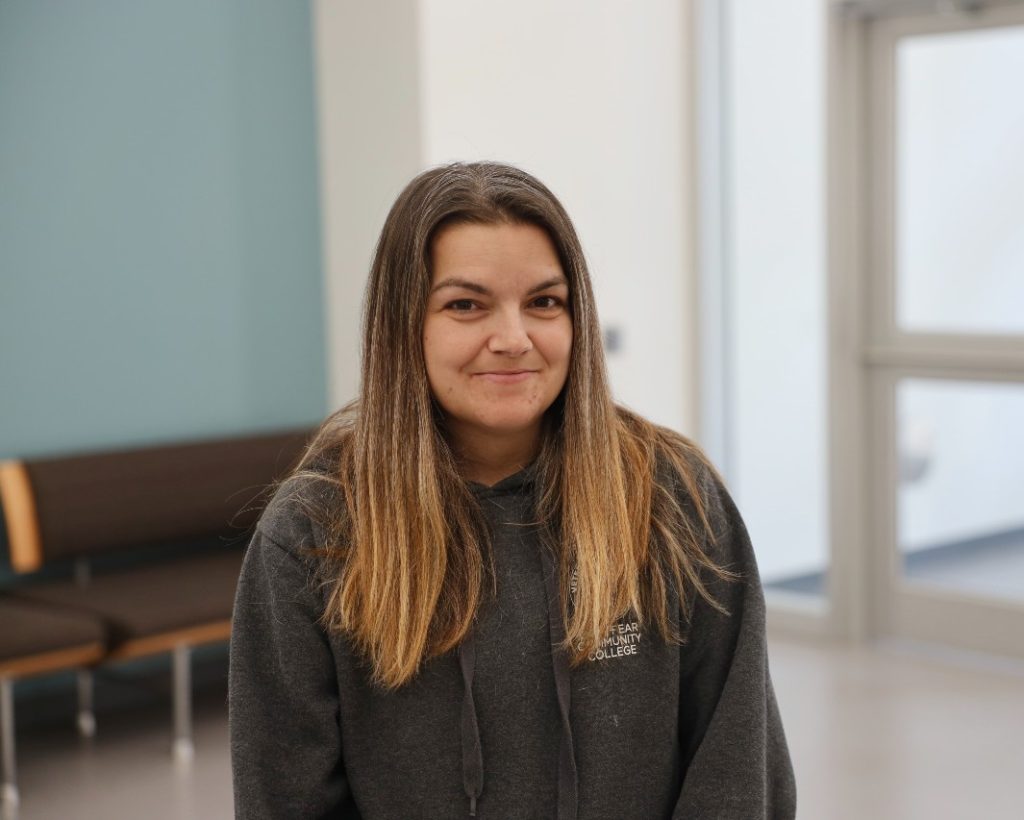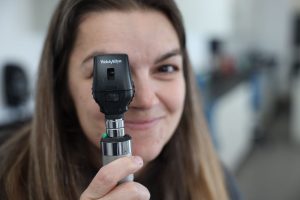CFCC student veteran finds veterinary passion

U.S. Marine Corps veteran and mom of three, Taylor Christman, has been a lifelong pet lover. Following her time in the military, she decided to pursue a career as a care provider. After earning an associate degree in medical office management, Christman began work as a 911 dispatcher for Onslow County. Helping humans was her way of paying it forward, but she realized she wanted to use her care-providing passion to help animals.
“Having been in the military and overseas, it was therapeutic for me to give back by working with people through 911,” said Christman. “But I decided I want to bring that passion over to the animal side.”
As a single mom, Christman had concerns about the challenges of enrolling full-time in school and raising three children, but she knew she wanted to pursue this passion. She explored her financial options and communicated with the program director about the program’s prerequisites and application process. Her research and work paid off. She received her acceptance letter in the summer of 2019.
“I want to get the word out to single parents that where there’s a will, there’s a way,” noted Christman. “Talk to the program directors, instructors, and advisors at CFCC. They can help you make it happen.”
Focused on the Future
 Christman plans to intern with an orthopedic specialist during her clinical studies this summer. She is interested in working with large animals and feels that orthopedic care will allow her more opportunities to work with cows and horses.
Christman plans to intern with an orthopedic specialist during her clinical studies this summer. She is interested in working with large animals and feels that orthopedic care will allow her more opportunities to work with cows and horses.
“There are so many options in the veterinary industry,” says Christman. “I look forward to dipping into different concentrations. That will help me decide on my specialty focus.”
Filling the Gap
A shortage of trained veterinary medical technicians is forcing animal clinics to teach their untrained staff to assist with vaccinations and other routine care.
“There is an average of only one technician for each veterinarian in North Carolina. The NC Veterinary Medical Board recommends two technicians per vet,” explains April Lehman, program director of Veterinary Medical Technology. “We receive multiple weekly requests from clinics looking for technicians to hire. Job opportunities are abundant.”
It’s no surprise that animal clinics from all over the state seek out graduates from CFCC’s program. Since 2017, the Associate of Applied Science program has offered each VMT student hands-on training in a sophisticated, well-equipped, real-world medical setting.
In addition to learning the anatomy of a variety of animal species, students assist with spay, neuter, and dental services. Graduation requirements include 320 clinical hours with a licensed veterinarian. Students have the choice to intern at either an animal hospital or with zoos and aquariums.

